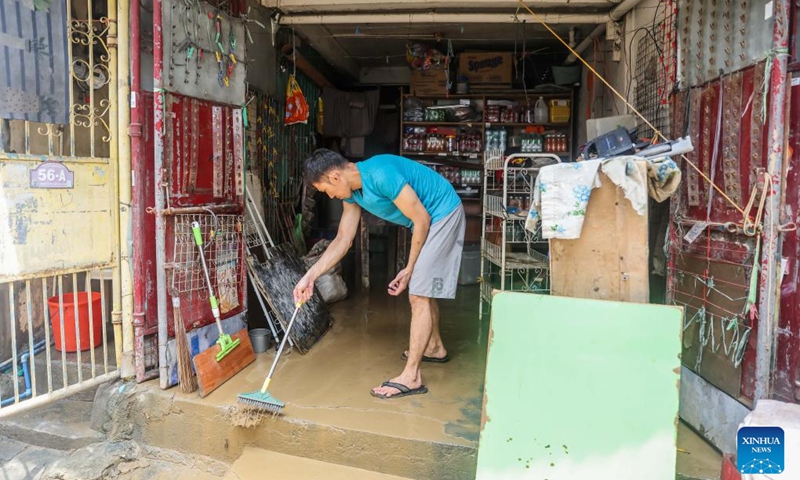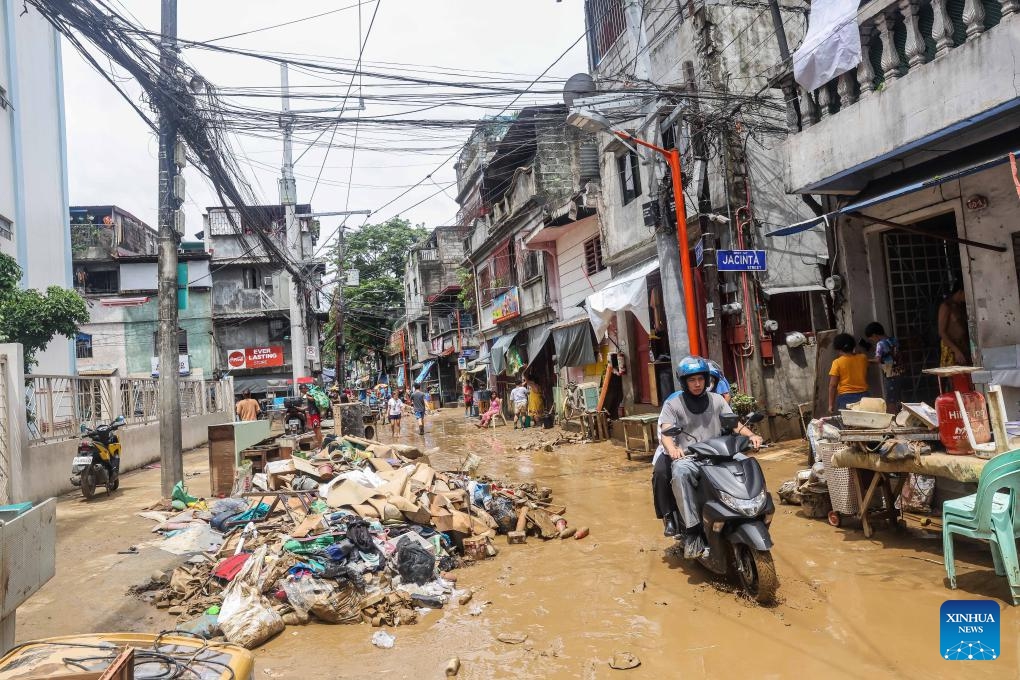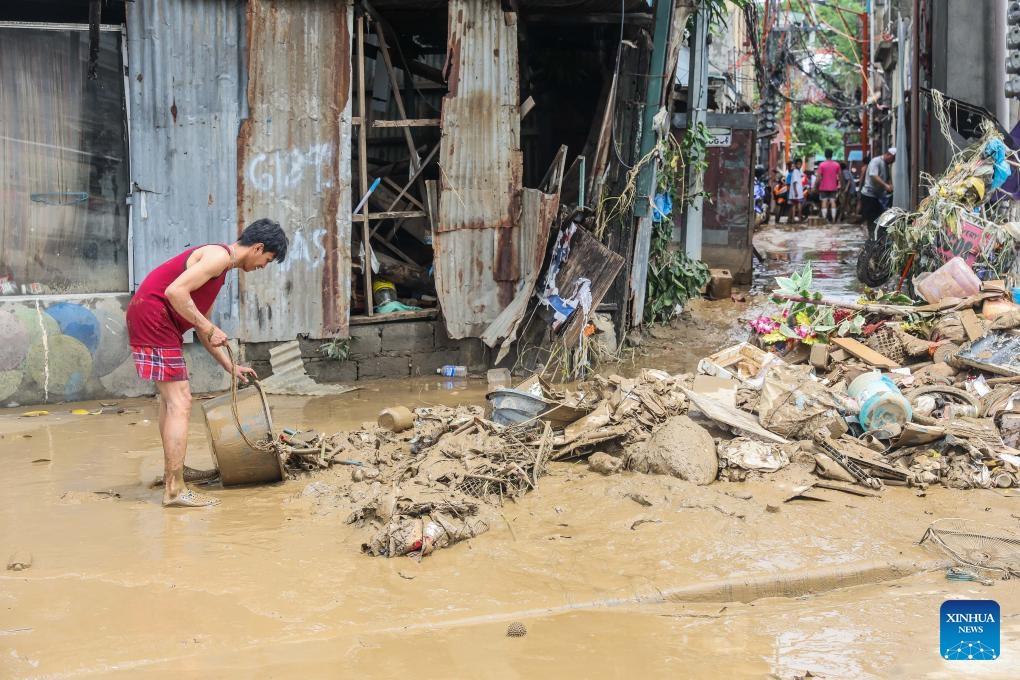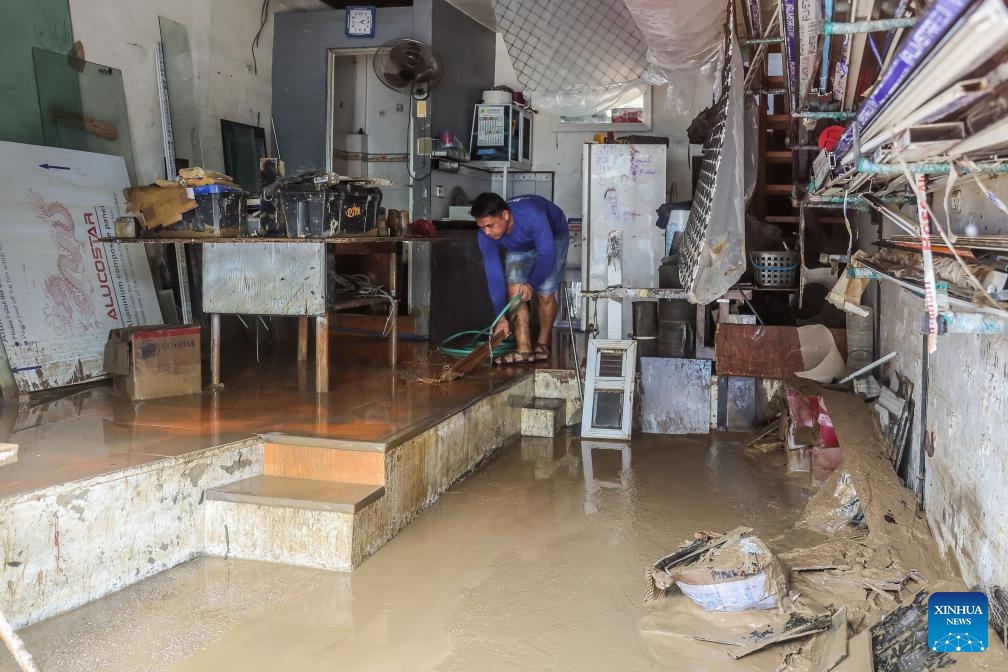
A resident cleans silts brought by floods in Marikina City, the Philippines, July 25, 2024. Reported deaths from heavy rains, massive flooding, and landslides triggered by southwest monsoon enhanced by typhoon Gaemi have climbed to 21, police said on Thursday. (Photo: Xinhua)

This photo taken on July 25, 2024 shows the view of a street after floods in Marikina City, the Philippines. Reported deaths from heavy rains, massive flooding, and landslides triggered by southwest monsoon enhanced by typhoon Gaemi have climbed to 21, police said on Thursday. (Photo: Xinhua)

A resident cleans garbages brought by floods in Marikina City, the Philippines, July 25, 2024. Reported deaths from heavy rains, massive flooding, and landslides triggered by southwest monsoon enhanced by typhoon Gaemi have climbed to 21, police said on Thursday. (Photo: Xinhua)

A resident cleans silts brought by floods at home in Marikina City, the Philippines, July 25, 2024. Reported deaths from heavy rains, massive flooding, and landslides triggered by southwest monsoon enhanced by typhoon Gaemi have climbed to 21, police said on Thursday. (Photo: Xinhua)
Reported deaths from heavy rains, massive flooding, and landslides triggered by southwest monsoon enhanced by typhoon Gaemi have climbed to 21, police said on Thursday.
In a preliminary report, police said seven people died in the Philippine capital region Manila, three in Cavite province, five in Batangas province, and three in Rizal province. Police also reported that one died in Bulacan province and another two in Angeles City in Pampanga province.
The cause of death mainly was drowning, landslides, fallen trees, and electrocution.
The Philippines' national disaster agency has yet to report deaths due to the twin effects of southwest monsoon and Gaemi, which exits the Philippines on Thursday morning.
Gaemi, the third typhoon to lash the Philippines this year, has dumped rains, triggering flash floods and landslides in Metro Manila and many regions.
Aside from taking lives, Gaemi submerged and destroyed houses, primarily shanties in coastal and riverside communities, and swept away cars.
Displaced residents spent Wednesday night in covered courts, schoolhouses, churches, and other makeshift evacuation centers while waiting for the floodwaters in their areas to recede.
The Philippines is one of the most disaster-prone countries globally, mainly due to its location in the Pacific Ring of Fire and the Pacific typhoon belt. On average, the archipelagic country experiences 20 typhoons yearly, some intense and destructive.
